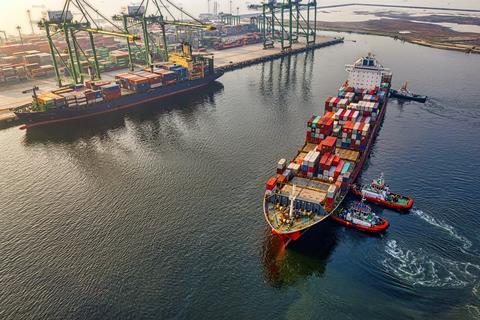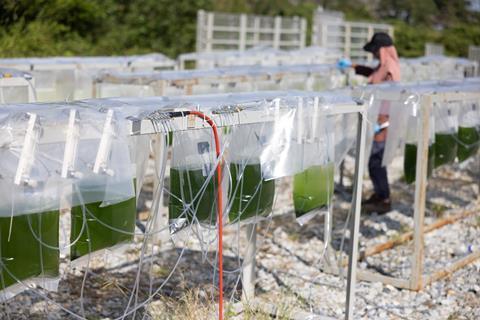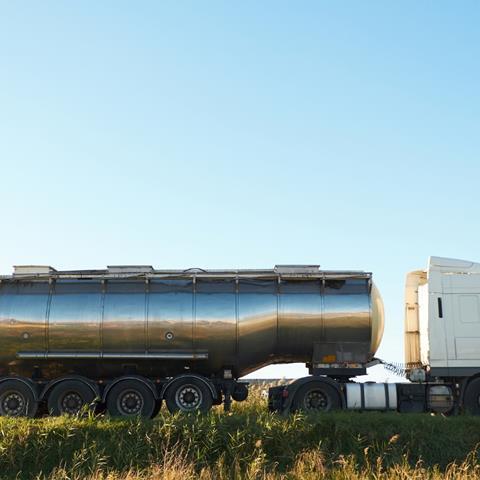Following the recent release of the ISO 8217:2024 marine fuel specification standard and the growing emphasis on biofuels, the importance of “well-to-wake” fuel traceability is starting to take centre stage. This revised standard will play a key role in determining the future of biofuel feedstocks – ultimately deciding the winners and losers in this evolving market.
Decoupling long-distance transportation from fossil fuels is challenging. While electrification is advancing for passenger and light goods vehicles, container ships crossing oceans, and heavy land vehicles operating in remote areas of the world present a bigger challenge. It is in this space where biofuel technology can really have an impact.
Derived from organic matter, biofuels offer a renewable, low-carbon alternative to fossil fuels. However, the existence of fraudulent feedstocks and the impact of indirect land use change present significant challenges. Ensuring that biofuel development remains sustainable and equitable will depend on the implementation of robust standards to maintain consumer confidence.
The Need for Biofuels
Burning fossil fuels is the single largest contributor to the climate change. With the global population projected to surpass ten billion by the end of the century, competition for habitable land, freshwater, and food will only intensify. Reducing fossil fuel dependency is crucial, but decarbonisation requires more than just a shift in how we generate grid energy; it demands a comprehensive mix of solutions.
Electrification is viable for passenger vehicles, light aircraft, and inland shipping where distances are short, plant operational lifespans are moderate, and access is straightforward. For transoceanic journeys, where vessels are significantly larger, in operation for 330 days a year and can remain in service for 30 to 40 years, reliable and compatible fuels with sufficient energy density are needed. Favoured by the maritime industry, ‘drop-in’ biofuels require minimal modifications to vessels, power plant equipment, and supply chain infrastructure and safety SOPs. When blended with existing marine fuels, change is incremental, but results are immediate.

Although the maritime industry contributes just 3% of global greenhouse gas emissions, its critical role in transporting essential goods such as grains, food, and machinery and equipment underscores the urgent need for cost-effective, low-carbon fuel alternatives. These alternatives are vital not only for maintaining operational efficiencies but ensuring equitable access to decarbonising solutions, particularly for legacy equipment that will remain in service for decades to come.
Growing Pains
The foundation of biofuel production lies in its feedstocks – the organic materials used to produce fuel. Unlike fossil fuels that release long-sequestered carbon, biofuels recycle carbon already present in the atmosphere, making them more sustainable.
The choice of feedstocks not only affects the efficiency and sustainability of biofuels but also their impact on food security and land use. Without clear policies and standards, the expansion of the biofuel industry could lead to further deforestation, loss of peatland, competition with food production, and increased demands on fresh water supplies.
By expanding beyond traditional crops and embracing next-generation algal and waste-derived feedstocks, we can address these environmental and food security concerns while unlocking new economic opportunities.
Step Change for Algae
Microalgae have long been considered an attractive biofuel feedstock; fast-growing single cell organisms with high lipid content, requiring just sunlight, carbon dioxide, and the photosynthesis power to draw down and lock in carbon. On paper, the ideal biofuel solution.
Moving from the lab to industrial production has proven challenging but with the discovery of robust strains of microalgae capable of thriving in high-salinity environments, and advancements in automated growth platforms, the commercial viability of algal biofuels is becoming increasingly likely – shifting the question from “if” to “when.”

Cultivated in enclosed bioreactors on barren land, algae biofarms avoid conflict between existing arable farmland and precious rainforests, taking risk off the table. They offer greater energy density per hectare than other crops whilst contributing to the planet’s photosynthetic capacity. When co-located near high-emitting refineries and cement plants, algal biofarms reduce industrial emissions by utilising flue gases as a carbon source and once the oil has been extracted, the remaining biomass has value as a high protein animal feed - creating a truly multifaceted solution.
Managing Sustainability Through Standards
So, as global demand for cleaner energy intensifies, the role of standards will become increasingly crucial for safeguarding market integrity and minimising environmental harm. While the development of standards in the biofuel industry has been gradual – with the European Union (EU) and the International Maritime Organization (IMO) making incremental updates – the recent ISO 8217:2024 update for marine fuel represents a significant milestone. This update not only advocates for the broader use of biofuels but also provides clear guidance on suitable feedstocks and increased testing requirements.
These advancements will play a vital role in ensuring that biofuels used in ship engines meet legal standards. As innovations in oil traceability further strengthen supply chain integrity, these measures will help close gaps that currently allow fraudulent feedstocks to enter the market, ultimately boosting customer confidence whilst reducing environmental risks.
Alongside ISO 8217, the ISCC standard is also gaining traction, ensuring that feedstock sources protect high-carbon land and biodiversity. In June, the first B24 biofuel blend was delivered in Port Klang, Malaysia – the maximum biofuel blend ratio currently allowed for shipping, and notably, fully compliant with the ISCC standard for sustainability.
In aviation, perhaps the most challenging sector to decarbonise, sustainable aviation fuel (SAF) is still in its infancy, with less than 0.05% of total jet fuel currently attributed to SAF. Although the ReFuelEU Aviation initiative is pushing for change, it requires a significant increase in feedstock supply for SAF conversion. Presently, EU production can meet only 10% of the 2030 mandate, highlighting the need for an increasing mix of appropriate feedstock supplies.
In Summary
As the biofuel industry continues to innovate, its potential to play a significant role in our energy future becomes increasingly promising. Underpinned by robust standards and traceability, we can begin to decouple long-distance transport from fossil fuels without negatively impacting food production, or incentivising deforestation and indirect land use change.
Moreover, as we transition to a decarbonised future, it is essential that this shift is just and equitable, providing opportunities and support for those disproportionately affected by climate change.
References & Further reading
ISO 8217:2024 - Specifications of marine fuels
ISCC System – Solutions for sustainable and deforestation free supply chains








No comments yet